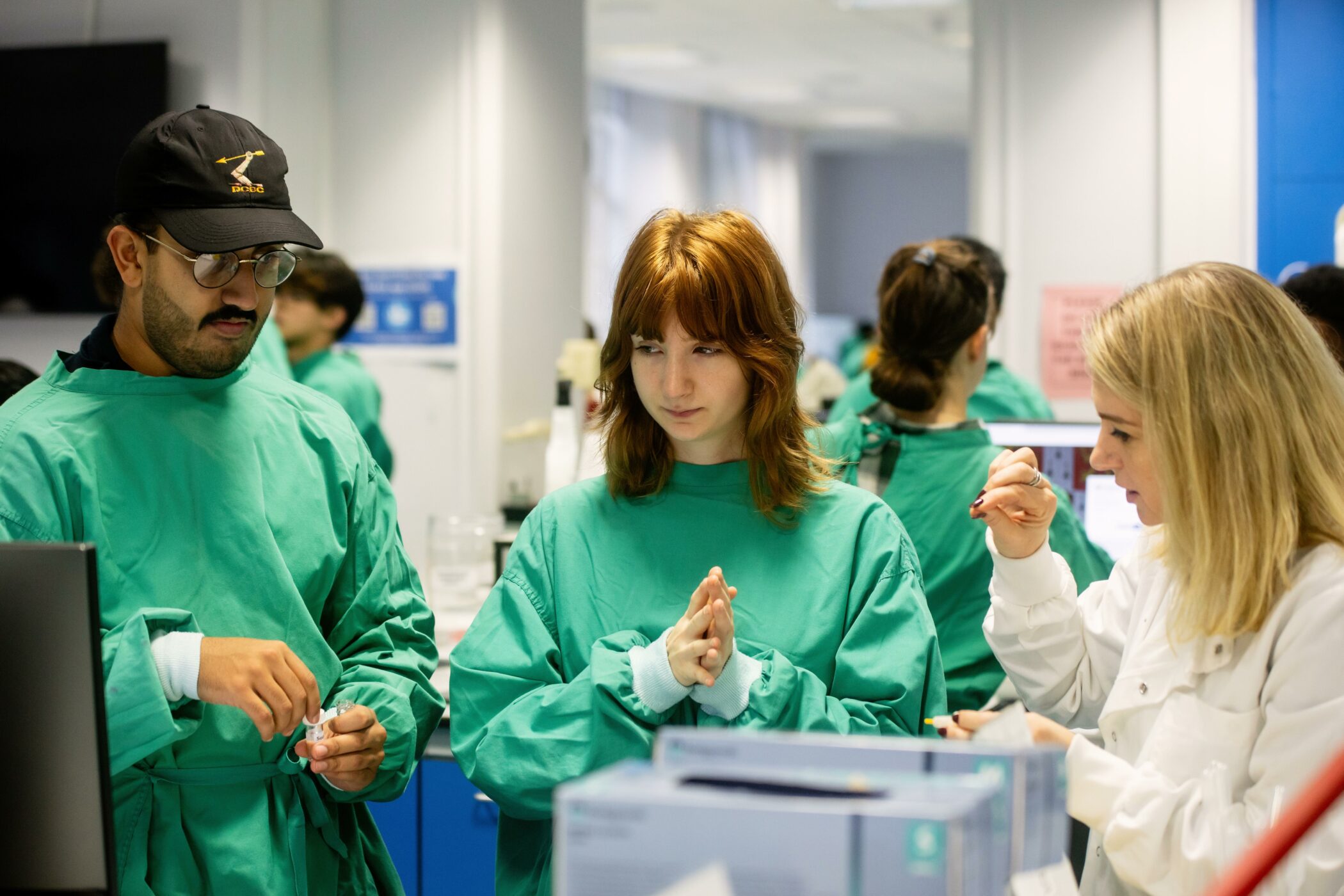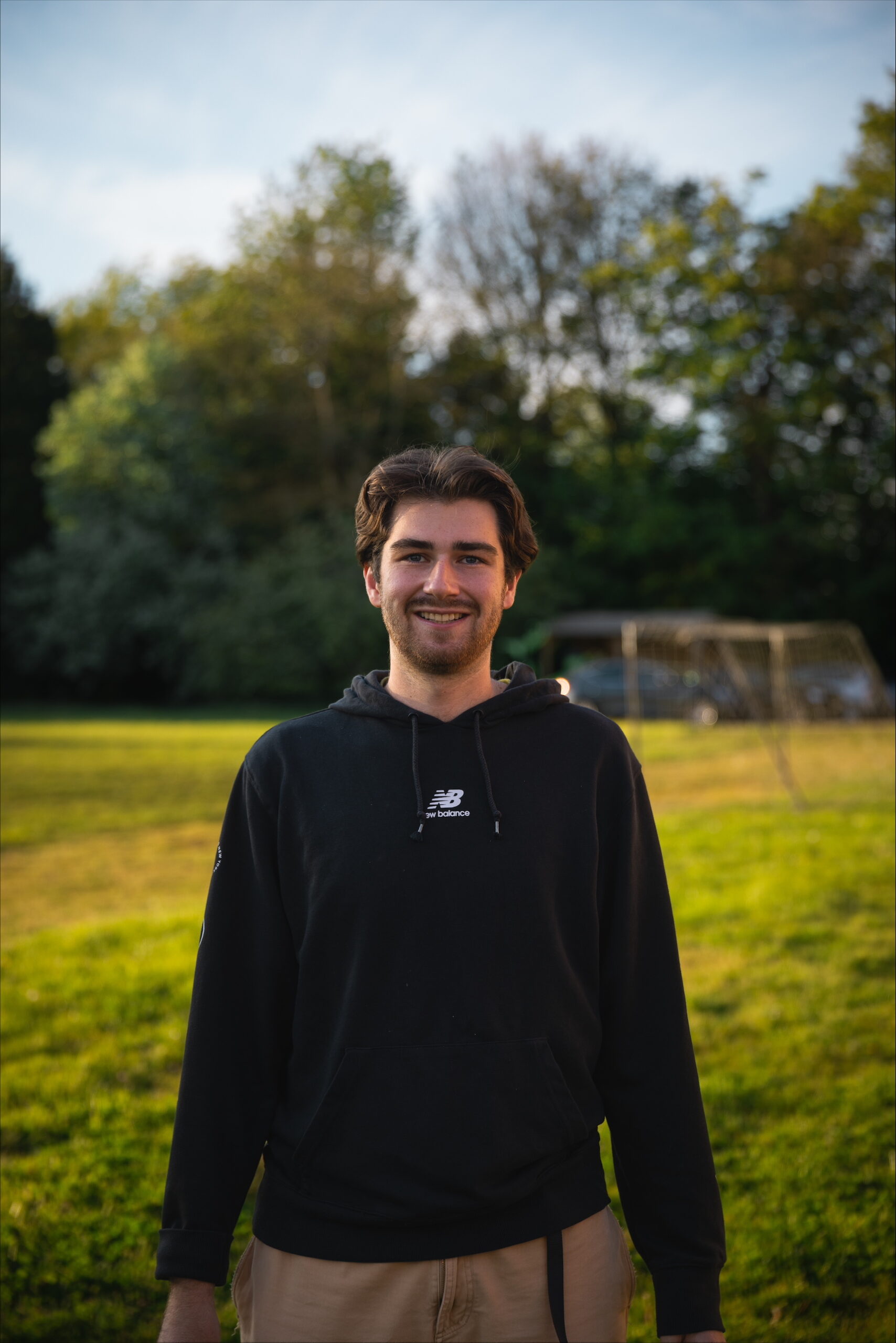Studying Graduate Medicine at Cambridge
- UCAS Code: A101
- How many are admitted to Cambridge every year: 40
- Typical offer: A*A*A at A Level if you graduated with a 2:1 or have yet to complete your degree, ABB if you graduated with a first-class degree
- 41-42 points in IB with 776 at Higher Level if you graduated with a 2:1 or have yet to complete your degree, 38-40 points with 665 at Higher Level if you have a first-class degree
- Essential subjects: A Level Chemistry at A or A* to be passed within 7 years of entry to the course; at least one of Biology, Physics, or Mathematics at A Level
- Useful subjects: Science-based subjects
- Course length: MB and BChir, 4 years full-time
The Cambridge Graduate Course in Medicine is an accelerated four-year programme. The emphasis is the acquisition of clinical skills by direct patient contact in hospital and community environments as well as the integration of core medical science with clinical medicine.
What can I do with a degree in Graduate Medicine?
The vast majority of Graduate Medicine students progress to core foundational training once they graduate and qualify as doctors. Some graduates opt for a career in academic research either upon graduation or after completing foundational training.

Studying Graduate Medicine at St Edmund’s College
St Edmund’s welcomes applications for Graduate Medicine. We have an intake of around 10 students each year. In total, we have around 40 graduate medical students studying at St Edmund’s across all years. St Edmund’s has a high number of Fellows and Bye-Fellows actively involved in teaching and/or in clinical research.
All Graduate Medicine students are guaranteed a room in College for the duration of their studies. We have a range of accommodation available including single study bedrooms, ensuite study bedrooms, and studio flats. We have some accommodation suitable for couples and families and this is allocated on a first-come, first-served basis. For more information on accommodation, visit our accommodation pages.
St Edmund’s is located only a short walk or cycle away from the city centre, where most of the preclinical teaching is based. It is also located very close to the U1 and U2 bus route connecting West Cambridge and the city centre to the biomedical campus, where the School of Clinical Medicine is located.
The college offers several spaces where you can study and work on your essays including the Paul Luzio Library Building, the Norfolk Building, study desks in the Mount Pleasant Halls Common room, the comfortable couches of the CR, in Edspresso or the benches in our lovely apple orchards!
We also have six study rooms (2 in the Luzio Building, 2 in Norfolk Building, and 1 in Mount Pleasant Halls) which can also be booked by students for their private study time or group projects.
Our college also has an extremely supportive Welfare and Wellbeing Department, which is happy to lend an ear and provide support should a student feel anxious or overwhelmed with the academic year.

Eddies is a fantastic place to study medicine as a graduate. With a supportive academic community surrounding the subject, combined with a wonderfully inclusive and diverse group of students studying other subjects, you get the best of all sides of Cambridge.
How to apply
Applications for all courses are made through UCAS. You must apply by 15 October 2025 to be considered for entry in October 2026. We only accept applications for Graduate Medicine in the October application round.
As a mature College, we recognise that our applicants come to us from a diverse range of educational backgrounds and may have studied a long time ago. However, we would expect evidence of formal study within the last two or three years as evidence of an ability to cope with the challenging academic nature of a Cambridge course.
Entry requirements
Supplementary application form
Assessment
Shortlisting
Work experience
Written work
Interviews
Deferred applicants
Affiliated students
Additional requirements if you are offered a place
What is a typical Term’s work?
The academic year for undergraduates is divided into three terms – Michaelmas, Lent, and Easter – of eight weeks each. Teaching is delivered through a combination of lectures, practical classes, and supervisions. You will typically have 20 to 25 hours of teaching per week. The course is divided into two pre-clinical years and two clinical years.
In your pre-clinical years, you will take the same courses as those on the standard undergraduate course. You will also go on 5 clinical placements.
You will spend Year 3 on clinical placements at Addenbrooke’s Hospital in Cambridge or at other hospitals in the region.
You will spend Year 4 on clinical placements at West Suffolk Hospital in Bury St Edmund’s as well as at GP practices locally.
People
- Dr Vian Azzu, preclinical Director of Studies and consultant hepatologist
- Dr Kevin Loudon, preclinical Director of Studies and consultant in vasculitis and nephrology
- Dr Anna Spathis, clinical Director of Studies and Associate Professor (Honorary Consultant) in Palliative and End-of-Life Care
- Dr Ben Challis, clinical Director of Studies and consultant endocrinologist
- Dr Rafia Al-Lamki, Fellow and Senior Clinical Scientist in the Department of Medicine
- Professor Edwin Chilvers, Fellow and Professor of Medicine; Head of the National Heart and Lung Institute, Imperial College London; Senior Visiting Research Fellow, Department of Medicine
- Dr James Whitworth, Fellow and Assistant Professor in Medical Genetics
- Professor Hill Gaston, Fellow and Emeritus Professor of Rheumatology
- Dr Diana Wood, Emeritus Clinical Dean in the School of Clinical Medicine
- Dr Elizabeth Bright, Bye-Fellow and consultant anaesthetist at West Suffolk Hospital; clinical tutor for the Cambridge Graduate Course in Medicine
- Dr Gianmarco Contino, Bye-Fellow and Associate Professor of Cancer Genomic Medicine and Group Leader, Department of Cancer and Genetic Sciences, University of Birmingham
- Dr Effossyni Gkrania-Klotsas, Bye-Fellow and consultant in infectious diseases at Cambridge University Hospitals; Career Development Fellow in the MRC Epidemiology Unit, University of Cambridge
- Dr Rachel Shute, Bye-Fellow and tutor for the Cambridge Graduate Course in Medicine


